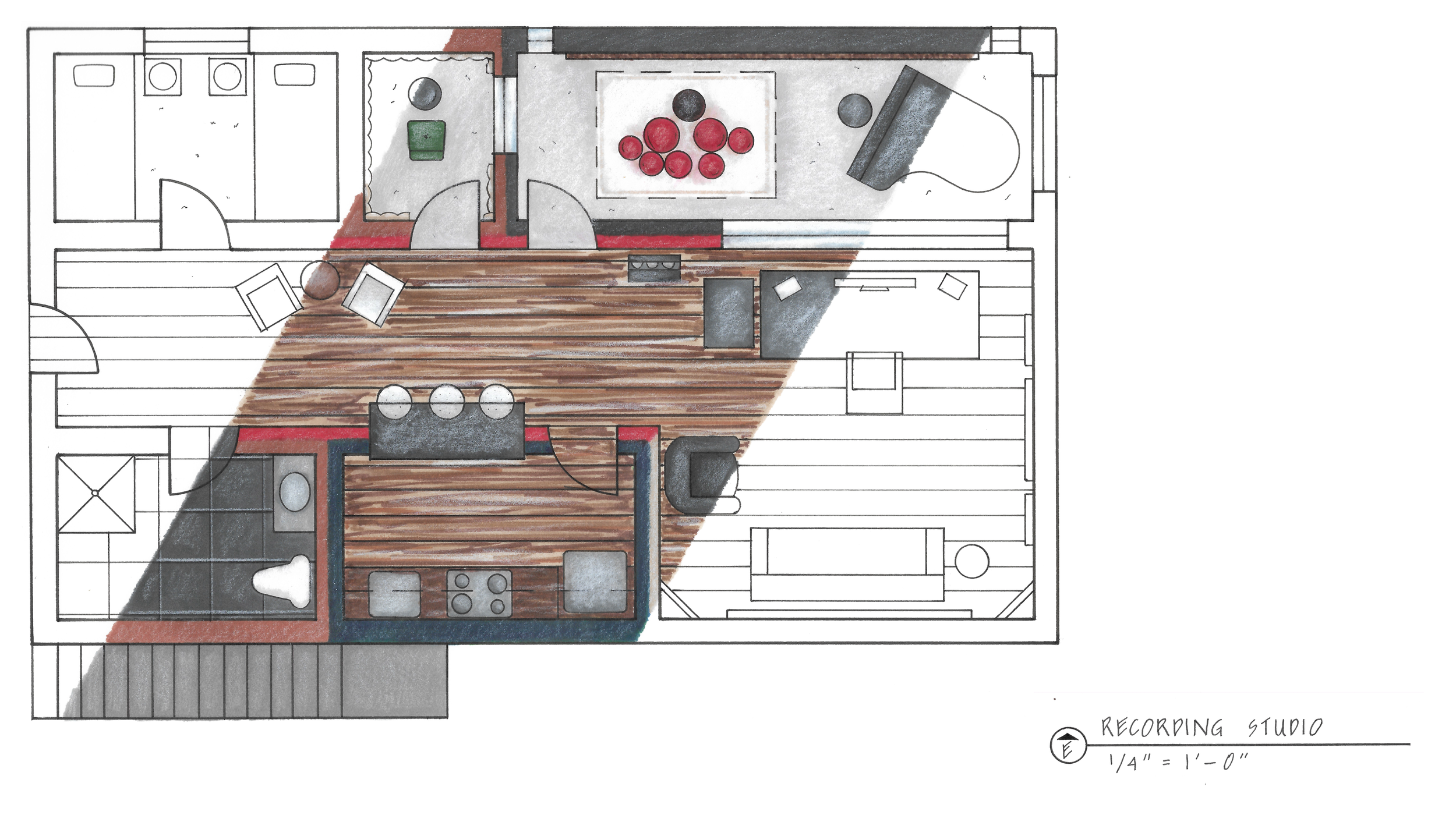Shipping Container Recording Studio
A musician and studio producer from Nashville, Tennesse is integrating his love for music and his passion for the outdoors by building a songwriter’s getaway in the woods. This sustainable studio design is built from four, 40 ft. shipping containers and can accommodate 1-4 guests for late night jam sessions or weekend recording meetings. Exterior stairway entrance to a second level private suite gives the client time to decompress from busy city life or a long day of producing music. Designed with LEED certified materials and maximum sustainability design in mind.




Materials & Finishes
First Floor
Second Floor
Program
-
Recording/producing studio with primary private suite
Built from four, 40’ long shipping containers
Approximately 1,280 sq. ft
Location: Percy Priest Lake near Nashville, Tennessee
Sustainable design features throughout
First floor ADA compliant
-
1/4” = 1’ 0 “ scale
Design floor plan(s), two 45 degree axonometric perspectives, and FF&E
At least 10 sustainable features
No more than 50% of a container side can be removed
Two means of egress
ADA complaint
-
Made from reused shipping containers; two story building
Residential and Private Commercial space
Sustainable Features:
Recycled denim sound insulation
LEED credible
Maximizes thermal performance and sound absorption
Does not contain any harmful chemicals or irritants; no VOC or off-gassing concerns
Resists mold, mildew, and fungus growth
Solar power panels
Free, 100% renewable energy
Custom designed to fit the property and maximize solar exposure
Batteries installed to store solar energy for nighttime and cloudy days; stable and safe Lithium Iron Phosphate Battery Chemistry
Avoid risk of power outages that could harm equipment
Save money on electricity and eventually make money back; Lifetime warranty
LED light bulbs
Cost-effective and long-lasting up to 13 years
Energy efficient; uses 85% less energy than halogen bulbs
Durable, strong, and free of mercury
Recycled acoustic paneling
Made from at least 60% recycled PET to create engineer PET felt tiles; each 12”x12” square is made from 4 recycled water bottles
No emission of harmful gases
Can be cut and reused throughout each space
Reclaimed wood sound diffusers
Made from reclaimed walnut, cherry, and hard maple woods
Handmade and milled to 1” pieces to create custom acoustical sound diffusers
Wood is sealed with locally sourced bee's wax
Low-voltage equiptment
Low-voltage equipment can lower costs of energy
Smaller equipment can help with lower voltage usage and lower safety risks
Second-hand instruments
Visit local second-hand music shops to eliminate carbon emissions
Instruments can be played for many, many years, and can be restored over time
Purchasing used instruments and equipment can save hundreds of dollars
Recycled rubber subfloor
Low VOCs; resists mold, mildew, and fungus growth
LEED credible
Durable, noise reduction for acoustical and impact sound dampening purposes
Cost-effective and does not compress or lose value over time
Reclaimed wood flooring
Does not harbor dust or microorganisms; provides a clean, healthy atmosphere
Wood floors help absorb sound and can create a warm, natural environment
Once installed, a floor’s lifespan is designed to live for hundreds of years
Triple pane windows
Highly insulated to reduce condensation up to 49% more than clear glass windows
An additional pane of glass helps control sound absorption and outdoor pollutants
Windows provide the indoor environment with pockets of natural light for overall health and creative inspiration


